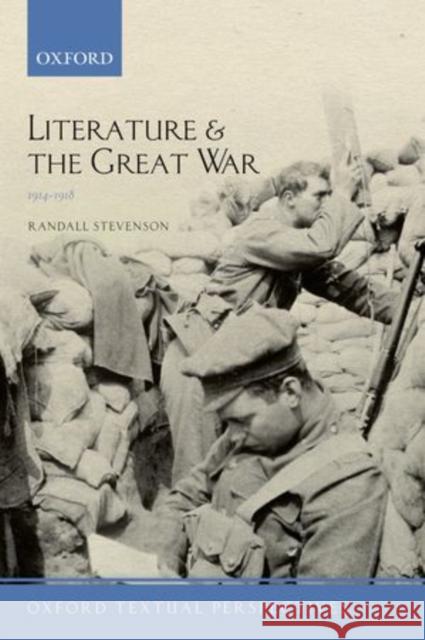Literature and the Great War 1914-1918 » książka
Literature and the Great War 1914-1918
ISBN-13: 9780199596454 / Angielski / Miękka / 2013 / 280 str.
Oxford Textual Perspectives is a new series of informative and provocative studies focused upon literary texts (conceived of in the broadest sense of that term) and the technologies, cultures and communities that produce, inform, and receive them. It provides fresh interpretations of fundamental works and of the vital and challenging issues emerging in English literary studies. By engaging with the materiality of the literary text, its production, and reception history, and frequently testing and exploring the boundaries of the notion of text itself, the volumes in the series question familiar frameworks and provide innovative interpretations of both canonical and less well-known works.
The Great War shaped the modern world, and much of its literary imagination. Literature and the Great War insightfully reassesses this impact, analysing a wide range of authors, both established and less well-known, and re-examining critical judgements, popular assumptions - even 'myths' - about war writing that have developed in the century or so that has followed. By looking at all genres of Great War writing in a single volume, the study allows reconsideration of the relative merits of the period's much-praised poetry and its generally less celebrated narrative texts. Randall Stevenson looks far beyond the work of soldier-authors, considering also the role of an older generation of writers - ones whose reputations were established before the war began - as well as the impact of war on the modernist imagination developing afterwards, in the 1920s. Literature and the Great War examines the context in which this literature was produced. Taking into consideration military life, the role of newspapers, war correspondents, politicians and propagandists. The unintelligible violence of the Great War placed a huge amount of pressure on the language, imagination, and textual practice of all who attempted to describe it. Incisively reconsidering these fundamental issues, Literature and the Great War challenges and rejuvenates approaches to its subject, redefining the interconnections of history, culture, and literary imagination in the early decades of the twentieth century.










